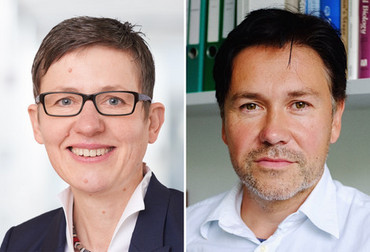Integrative heart-brain research: DFG funds new Research Training Group at the University Medical Centre Göttingen

The Research Training Group "Heart & Brain: Integrative Research across Organ Boundaries" (RTG 2824) investigates common physiological and pathological processes in the heart and brain as well as the interdependence of heart and brain diseases. The researchers at the new Research Training Group want to discover new mechanisms that lead to diseases that are based on malfunctions of the heart and brain and translate new findings from basic research into clinically applicable knowledge as quickly as possible. In the long term, they hope to contribute to the development of new diagnostic and therapeutic concepts. The DFG is funding the new Research Training Group with a total of around 6 million euros for an initial period of five years.
The new RTG 2824 aims to expand the cross-organ approach through integrative cutting-edge research in the field of heart and brain diseases in conjunction with the corresponding training of doctoral students in the natural sciences and medicine. Scientists from the cardiovascular and neuroscience departments of the University Medical Centre Göttingen, the German Centre for Neurodegenerative Diseases (DZNE), Göttingen site, and the German Primate Centre GmbH, Leibniz Institute for Primate Research are working closely together to achieve this. With a total of ten research projects, six associated clinical studies and a cohort of pluripotent stem cells (iPSC), the RTG 2824 offers around 30 doctoral students from the natural sciences and medicine as well as an equal number of associated doctoral students the opportunity to conduct interdisciplinary research on the heart and brain and at the same time to continue their professional and interdisciplinary training through a qualification programme.
Research in the RTG 2824 focuses on the joint mechanisms of heart muscle cells (cardiomyocytes) and nerve cells (neurones) as well as the heart-brain axis.
Affiliated clinical studies provide the necessary patient material and data to analyse the heart-brain axis in a clinical setting.In addition, research in the RTG 2824 relies on modern technology, including advanced proteomics, high-resolution microscopy, development of sensor molecules, application of biosensors, 3D multicellular organoids, single-cell omics and advanced magnetic resonance imaging (MRI) techniques. Some of these methods are being further developed within the RTG research projects.
The scientific training in the RTG 2824 prepares doctoral students for future careers as medical scientists or clinician scientists.The combination of innovative research projects with research training in an international environment should enable doctoral students to complete their doctorate or medical doctorate with publications as first author.